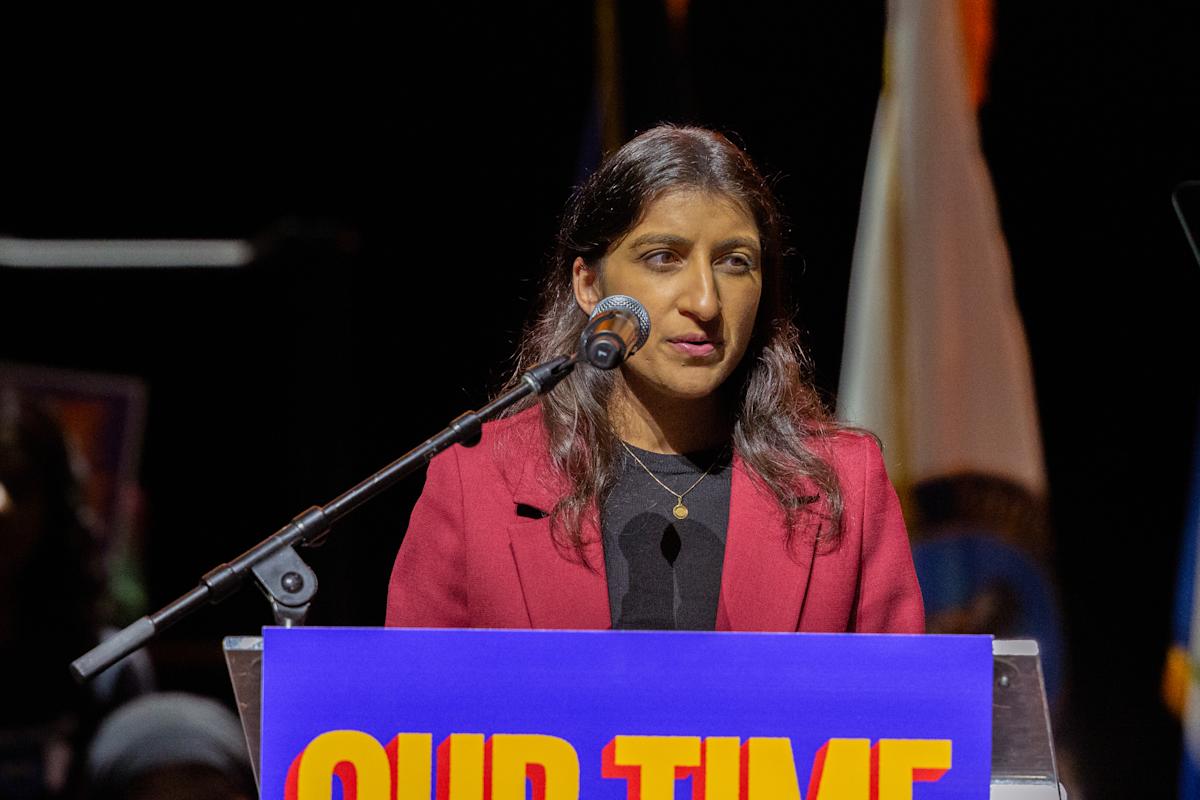“`html
Lina Khan Joins Zohran Mamdani’s Transition Team for New York Mayor
In a significant development for New York City’s upcoming administration, Mayor-elect Zohran Mamdani has enlisted the help of Lina Khan, the former Chair of the Federal Trade Commission (FTC) under President Joe Biden. Khan will serve as a transition co-chair, working alongside Grace Bonilla, Maria Torres-Springer, and Melanie Hartzog to establish the new administration before Mamdani officially takes office in 2026.
Mamdani’s platform emphasizes affordability and aims to combat corporate corruption as a means to reduce living costs for New Yorkers. His proposed policies include initiatives to ban hidden fees, eliminate non-compete clauses, and challenge rate hikes imposed by utility companies. These measures reflect a broader commitment to ensuring economic fairness and accessibility for all residents.
The Alignment of Mamdani and Khan
The alignment between Mamdani and Khan is noteworthy. During her tenure as FTC Chair, Khan was recognized for her efforts to strengthen the agency’s anti-monopoly framework, as well as her advocacy for banning practices such as non-compete clauses and hidden fees. Her approach resonates with Mamdani’s focus on supporting small businesses and promoting equitable economic policies.
Khan has publicly commended Mamdani’s campaign, particularly its emphasis on small businesses, which she highlighted in an opinion piece for The New York Times. “What we saw last night was New Yorkers not just electing a new mayor, but clearly rejecting a politics where outsized corporate power and money too often end up dictating our politics,” Khan stated during a press conference announcing her new role. She described the election as a mandate for change, emphasizing the need for an environment where all workers and small businesses can thrive.
Challenges Ahead for Mamdani
Mamdani’s ascent to the mayoral position has not been without its challenges. Critics have pointed to his relatively limited experience as a New York state assemblyman, questioning his readiness to lead the city. However, the selection of experienced individuals for his transition team indicates a strategic approach to governance, ensuring that his administration is well-equipped to address the complexities of city management.
This transition team is not only a reflection of Mamdani’s priorities but also a signal of his intention to tackle the influence of corporate power in local politics. The need for effective checks on big business has become increasingly relevant, particularly in light of the shifts that occurred during the Trump administration, which many believe reshaped the FTC to favor corporate interests.
Public Sentiment and Economic Context
As Mamdani prepares to take office, his administration’s focus on affordability and corporate accountability will likely resonate with a populace that has expressed frustration over rising living costs and corporate practices that disproportionately affect low- and middle-income families. A recent survey conducted by the New York City Department of Consumer Affairs indicated that nearly 70% of residents feel burdened by hidden fees and rising utility costs, underscoring the urgency of Mamdani’s proposed policies.
The collaboration with Khan, a prominent figure in antitrust advocacy, suggests a commitment to addressing these issues head-on. In addition to the ban on hidden fees and non-compete clauses, Mamdani’s platform may also explore further regulatory measures aimed at protecting consumers and fostering a competitive market environment. These could include:
- Strengthening consumer protection laws: Enhancing regulations to safeguard consumers from unfair or deceptive practices.
- Promoting transparency in pricing: Implementing policies that require businesses to disclose all fees upfront to consumers.
- Supporting small businesses: Creating initiatives that provide resources and support for local entrepreneurs to compete against larger corporations.
- Challenging monopolistic practices: Utilizing the FTC’s authority to investigate and address anti-competitive behaviors in the market.
The Significance of Khan’s Appointment
The appointment of Khan as a transition co-chair is a strategic move that underscores Mamdani’s commitment to a progressive agenda that prioritizes the needs of everyday New Yorkers. Her expertise in antitrust law and consumer protection positions her as a key figure in shaping policies that could redefine the relationship between city government and corporate entities.
This collaboration reflects a broader trend in American politics where local leaders are increasingly focused on issues of economic fairness and corporate accountability. As cities grapple with the challenges posed by corporate influence, Mamdani’s administration may serve as a model for how local governments can effectively push back against powerful business interests.
Looking Ahead: The Future of Mamdani’s Administration
As the transition process unfolds, stakeholders across New York City will be watching closely to see how Mamdani’s administration navigates these complex issues and whether it can deliver on its promises to create a more equitable economic landscape for all residents. The success of Mamdani’s initiatives will depend not only on the policies themselves but also on the administration’s ability to engage with community stakeholders, build coalitions, and foster a culture of transparency and accountability.
In conclusion, the collaboration between Mamdani and Khan represents a pivotal moment for New York City, as it embarks on a path toward addressing the pressing economic challenges faced by its residents. The potential for meaningful change is significant, and the administration’s approach to corporate accountability and economic fairness will likely set a precedent for cities across the nation. As the new administration takes shape, the eyes of the nation will be on New York City, eager to see how these ambitious goals are realized in practice.
“`




